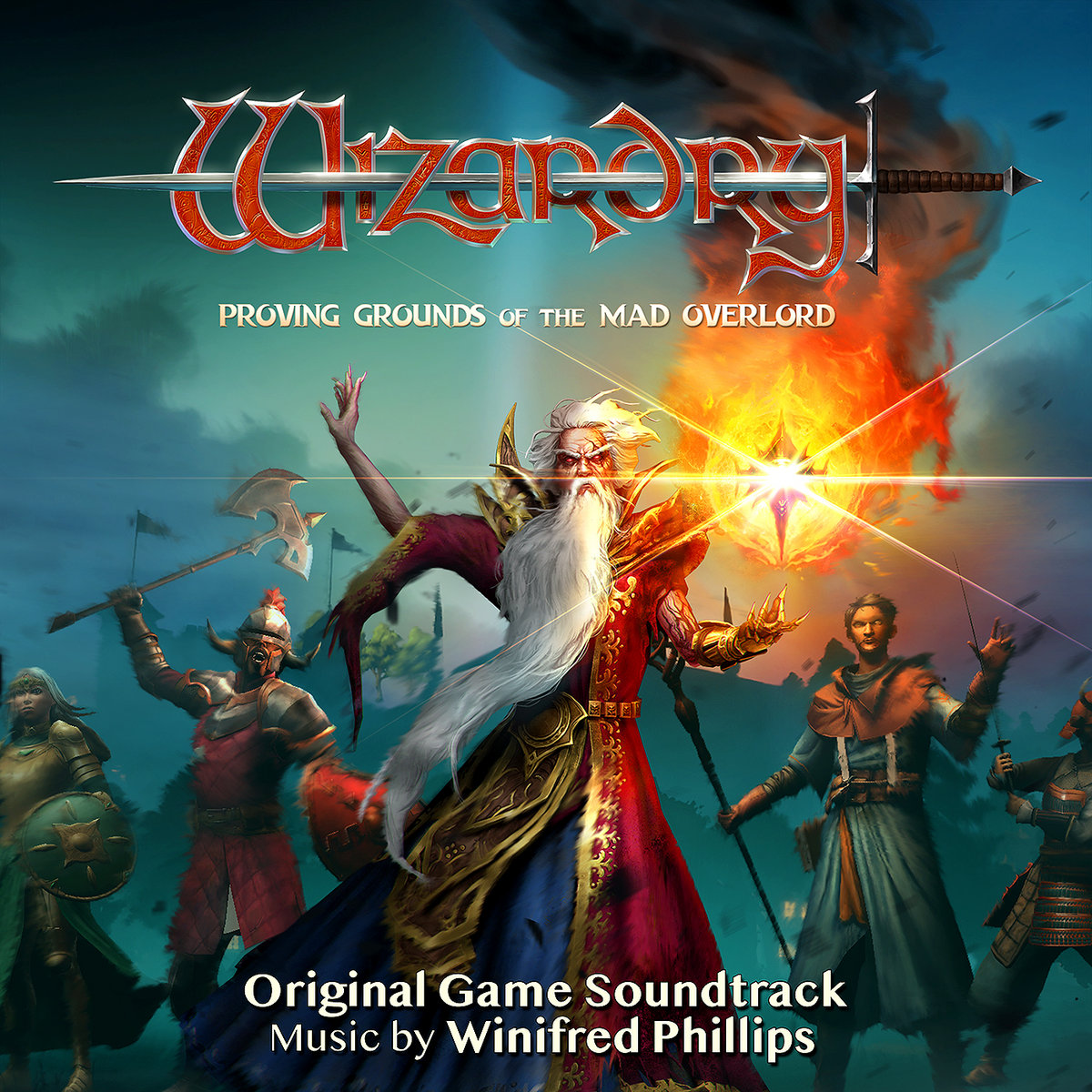Wizardry is a series with a storied history, dating back to 1981 with the release of Wizardry: Proving Grounds of the Mad Overlord. From a musical perspective, there wasn’t much to say with the first few titles throughout the ’80s … at least, not in America. As Wizardry found its way to Japan in the late ’80s with Famicom (NES) ports of the original CRPGs, new releases featured improvements not only to the graphics, but the music as well. I have written at length about the work of the late Kentaro Haneda, the oft-overlooked Ikuro Fujiwara, and other Japanese composers for the Japan-localized versions of these fantastic early titles. For a great early example, check out We Love Wizardry, the first published album in the series.
As the franchise evolved, some newer titles featured the work of Western composers. For example, Kevin Manthei worked on Wizardry 8, and Eric Heberling handled music on Nemesis: The Wizardry Adventure for PC and Sega Saturn. However, it always seemed to me that the Japanese versions of these games put priority on the aesthetics of the game (including the music) in a way that we just weren’t seeing in North America.
That all changed with the 40+ years later remake of the original Wizardry: Proving Grounds of the Mad Overlord! This overhauled remaster from Digital Eclipse launched in May 2024 with a special surprise: 16 original tracks from one Winifred Phillips. And I need everyone here to know that when I saw the name attached to this project, I jumped out of my seat.
I haven’t had the opportunity to talk about Winifred’s work on RPGFan (besides a brief mention in Music of the Year 2020) because she generally hasn’t scored many games that fit our scope of coverage. In my writing for other music blogs, I’ve noted her exemplary work on LittleBigPlanet 3, Assassin’s Creed III: Liberation, and much more. While her style tends to be cinematic orchestral, she also has great range with genre and instrumentation.
When I got my first chance to listen to the Wizardry: Proving Grounds of the Mad Overlord Original Game Soundtrack, I remembered what I loved about the early works of Kentaro Haneda and couldn’t help but compare. Haneda’s style was much akin to the classical melodic work of Koichi Sugiyama’s Dragon Quest. Phillips’ melodic work is strong, and she isn’t afraid to borrow from multiple periods. The Renaissance style of “Lord of the Castle” and the Irish Jig approach to “Gilgamesh’s Tavern” bring the high medieval fantasy setting to life.
However, as mentioned earlier, this composer is capable of serious tonal shifts from song to song as needed. I love the low, ominous brass and synth effects in “Dungeon Bestiary,” and the booming choir for “Wrath of the Wizard” has that perfect final battle feel. The latter, in fact, reminds me a great deal of Haneda’s battle themes for early Wizardry games. I can’t say for sure if Phillips intended to pay homage, but if that was her intention, she certainly stuck the landing. Honoring the tradition of the old games while utilizing a new framework (digital audio, incredibly lifelike sound fonts and other synths) is a great approach.
The soundtrack is notably short at just under 40 minutes; however, given this is a remake for a relatively small game, it didn’t surprise me that the soundtrack only had so much content. There is only so much material to score, after all! What did surprise me is that Winifred Phillips decided to give this soundtrack away! That’s right: she self-published this digital OST on Bandcamp and elsewhere for the tidy sum of zero dollars. Considering I have paid far more for soundtracks of much lower musical quality, I have to say, you can’t go wrong with free music that’s also fun to listen to! Go check it out! And if you’re looking for further reading while listening to the soundtrack, may I recommend Mark Roddison’s excellent review of the remastered game?





